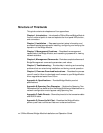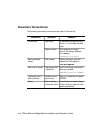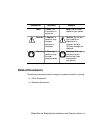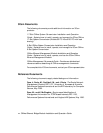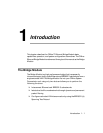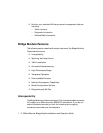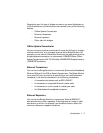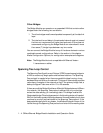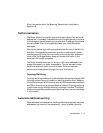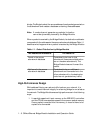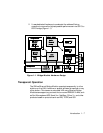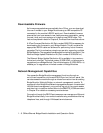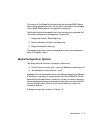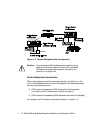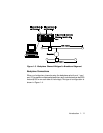1 - 4 ONline Ethernet Bridge Module Installation and Operation Guide
Other Bridges
The Bridge Module can operate on an expanded LAN that contains other
bridges under the following two conditions:
1. The other bridges must forward packets transparently at the data link
layer.
2. The total end-to-end delay in the extended network must not exceed
the time-out requirements of higher level protocols. 3Com does not
recommend configuring the Bridge Module on networks with more
than seven (7) bridge hops between any two nodes.
You can connect the Bridge Module to any of the above devices in various
combinations and configurations. Refer to the section in this chapter,
Media Configuration Options, for configuration examples and diagrams.
Note: The Bridge Module is not compatible with Ethernet Version
1 transceivers or cables.
Spanning Tree Loop Control
The Spanning Tree Algorithm and Protocol (STAP) is used among bridges in
a LAN to ensure only single paths exist between stations. The Spanning
Tree protocol is needed when there are parallel bridges forming a loop
between Ethernet LANs on the network. This type of network also provides
redundancy throughout the network so that if the primary bridge fails, a
backup bridge will take over within 10 to 20 seconds.
If there are multiple Bridge Modules or Midnight Bridges between LANs on
the network, the Spanning Tree protocol ensures that only one bridge
enters the data sending (or forwarding) state. This bridge is called the
Designated bridge. Other bridges remain in the blocking state until needed.
While in the blocking state the bridge does not forward packets, but it does
continue to monitor and participate in the Spanning Tree protocol. If the
designated bridge fails for any reason, the blocked bridge will learn of the
failure through the Spanning Tree protocol and enter the forwarding state.



